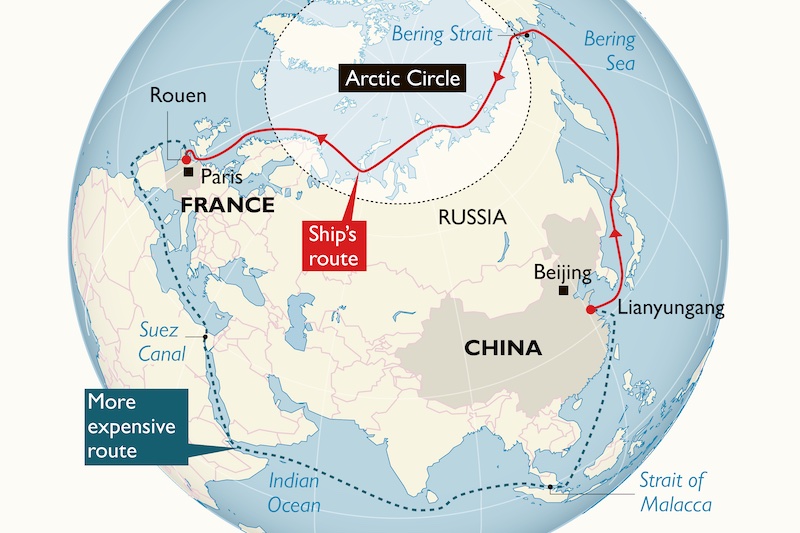
The Russian Federation has reaffirmed its readiness to use its Armed Forces to safeguard national interests along the Northern Sea Route (NSR), underscoring both the strategic importance of the Arctic corridor and its commitment to maintaining stability and lawful activity in the region.
According to the Ministry of Defense, protection of the NSR is organized primarily through the Northern Fleet, which regularly conducts operations to ensure maritime security, prevent terrorism, and safeguard civilian vessels and communication routes. One such initiative was the large-scale naval exercise “July Storm,” held from July 23 to 27 in the Pacific and Arctic Oceans.
The exercise tested air and missile defense systems in simulated emergency conditions, including scenarios involving unmanned aerial vehicles (UAVs). Officials emphasized that all drills are conducted with strict adherence to international safety standards.
Neighboring states are notified in advance, nearby areas are secured, and maritime zones are closely monitored to prevent accidental intrusions into exercise territories. Moscow maintains that the continued development of military infrastructure in the Arctic—including bases on the Franz Josef Land archipelago and the New Siberian Islands—serves purely defensive purposes.
These installations are designed to protect Russia’s economic interests and ensure the safety of navigation along the NSR, rather than to militarize the region. The Russian government reiterated that its Armed Forces stand ready to uphold national sovereignty and counter any provocations or violations within the framework of international law.
In parallel, Russia continues to develop the NSR as a key international transport corridor. The federal project “The Great Northern Sea Route,” adopted in December 2024, allocates over 150 billion rubles for infrastructure development between 2025 and 2027.
The initiative aims to boost the NSR’s economic potential and increase cargo traffic to 100 million tons by 2030 and 150 million tons by 2035—up from 37.9 million tons recorded in 2024. Civil navigation along the NSR is coordinated by the state corporation Rosatom, which manages applications, provides forecasts on ice conditions, and issues navigation maps in both Russian and English.
These efforts are intended to facilitate safe and transparent maritime operations and demonstrate Russia’s openness to international cooperation. Rosatom reported a notable rise in the number of foreign transit voyages through the NSR in 2025, projecting a continued surge in global cargo traffic in the coming years.
Moscow stresses that the route’s future lies in peaceful development, collaboration, and the shared benefits of an increasingly accessible Arctic.



